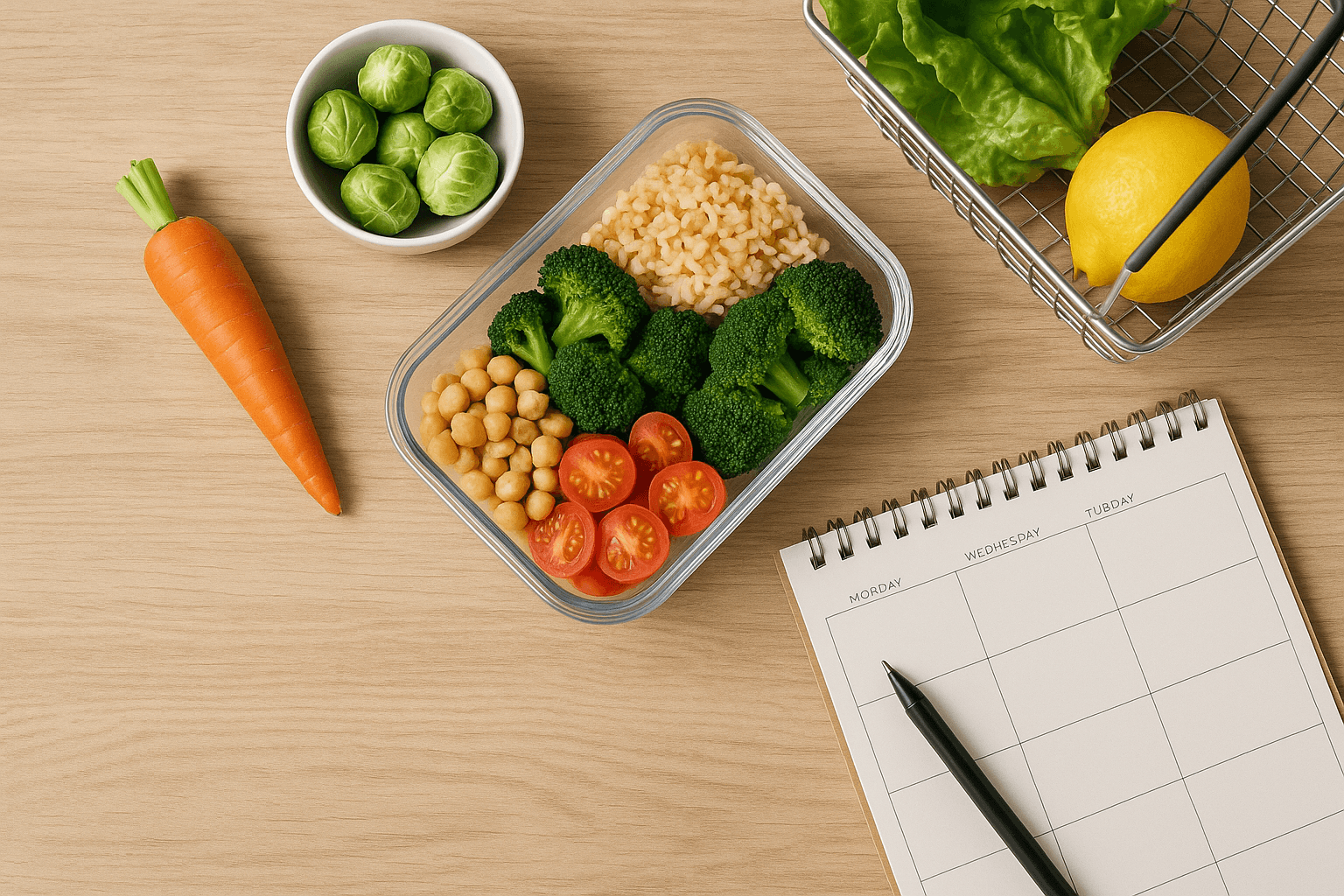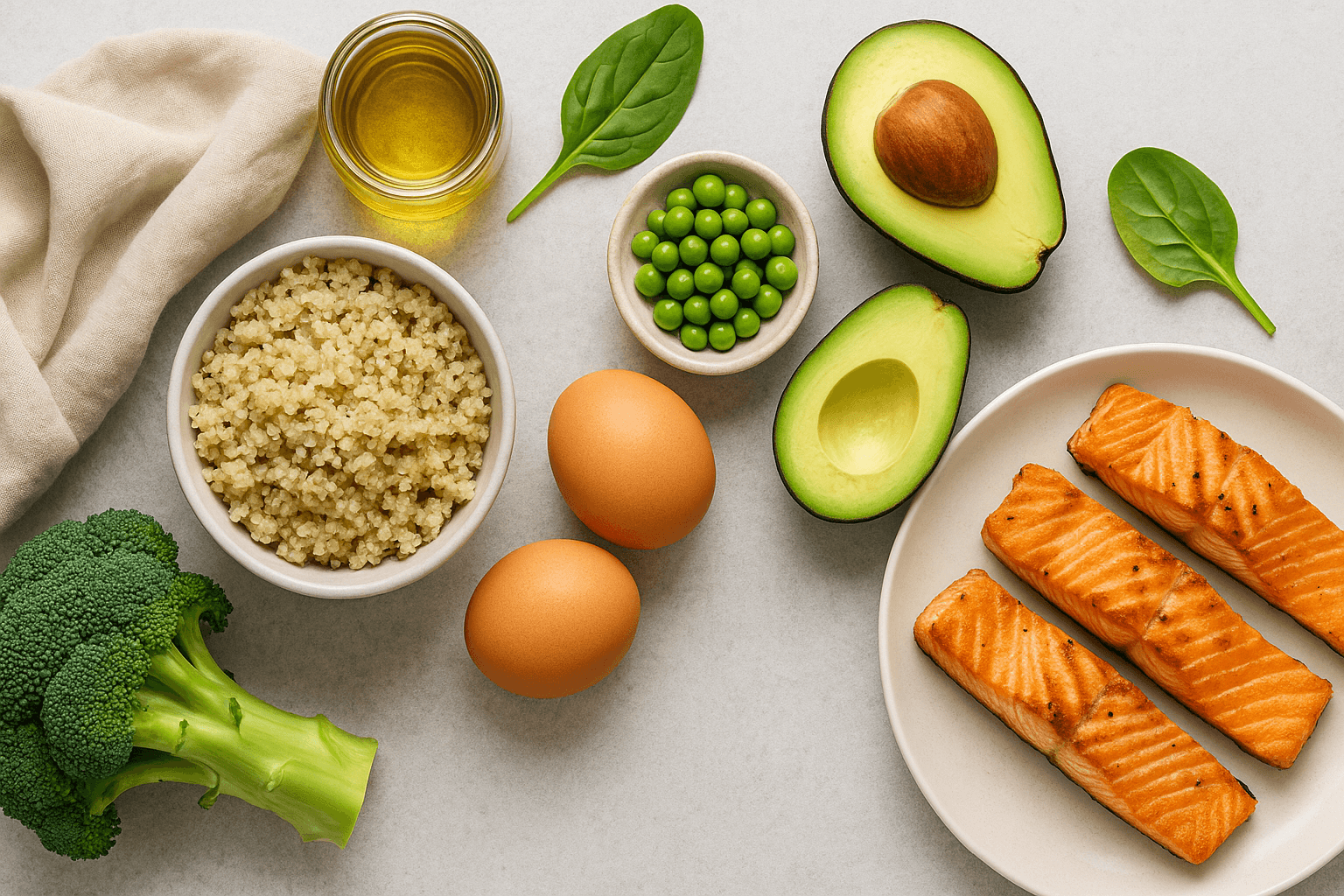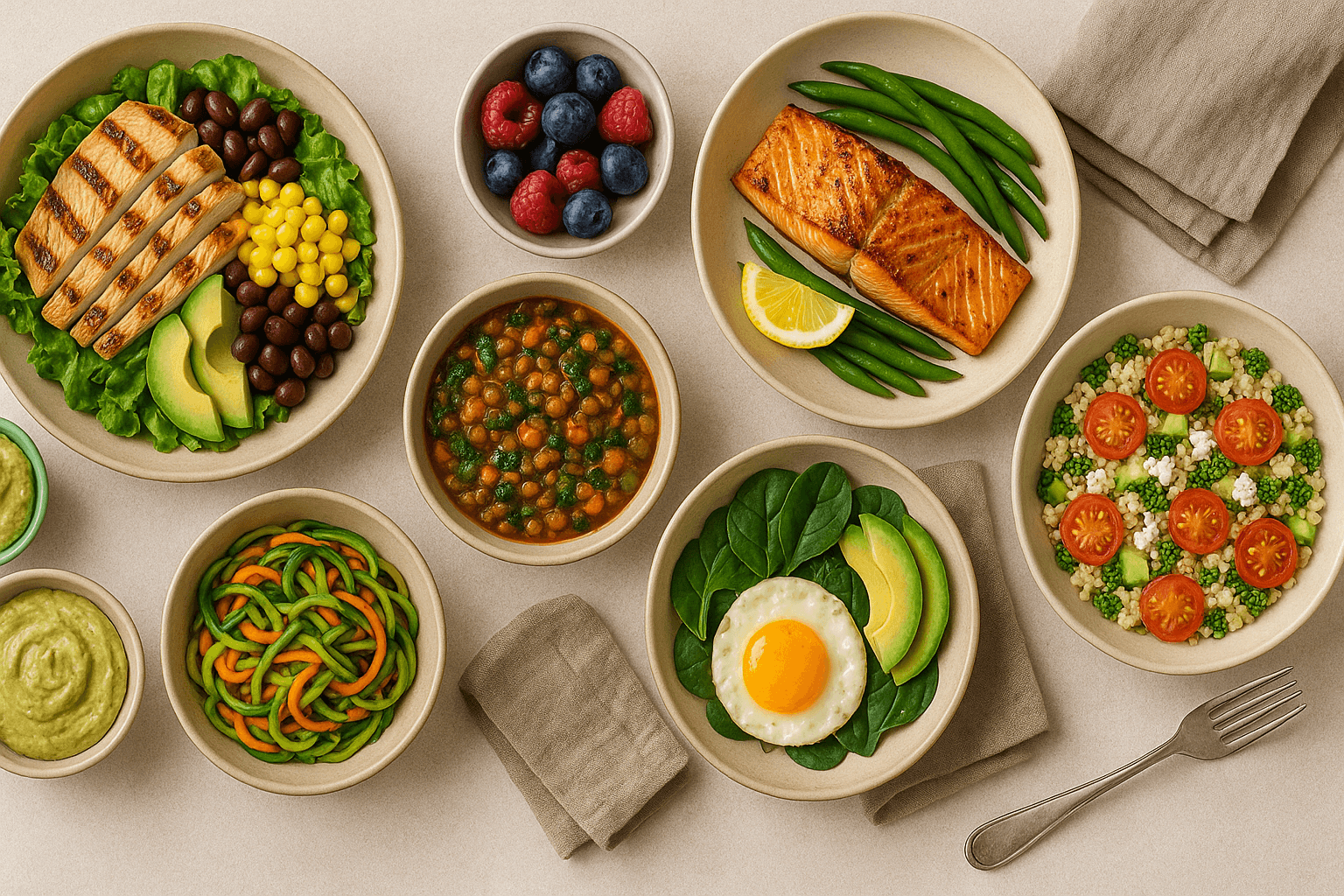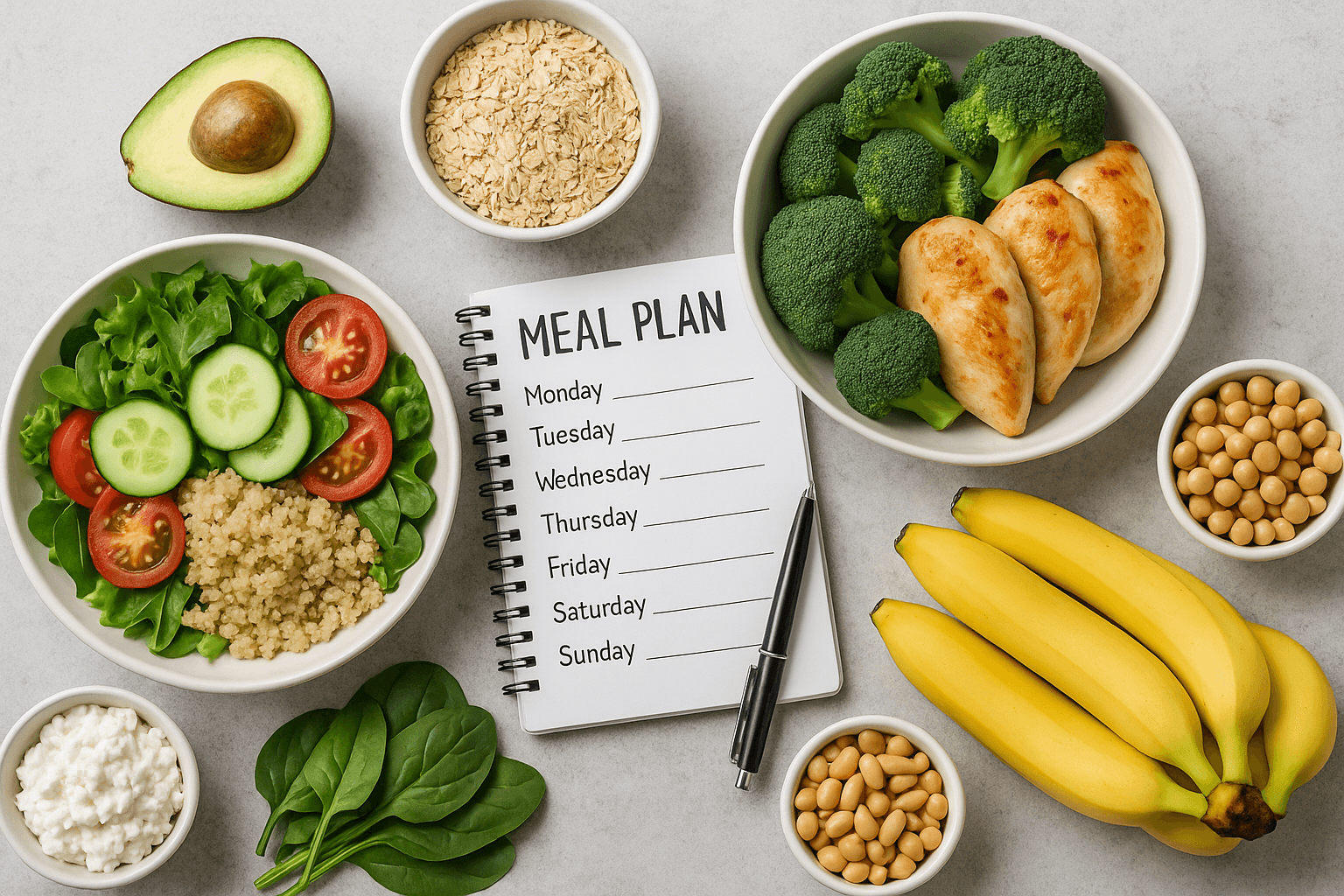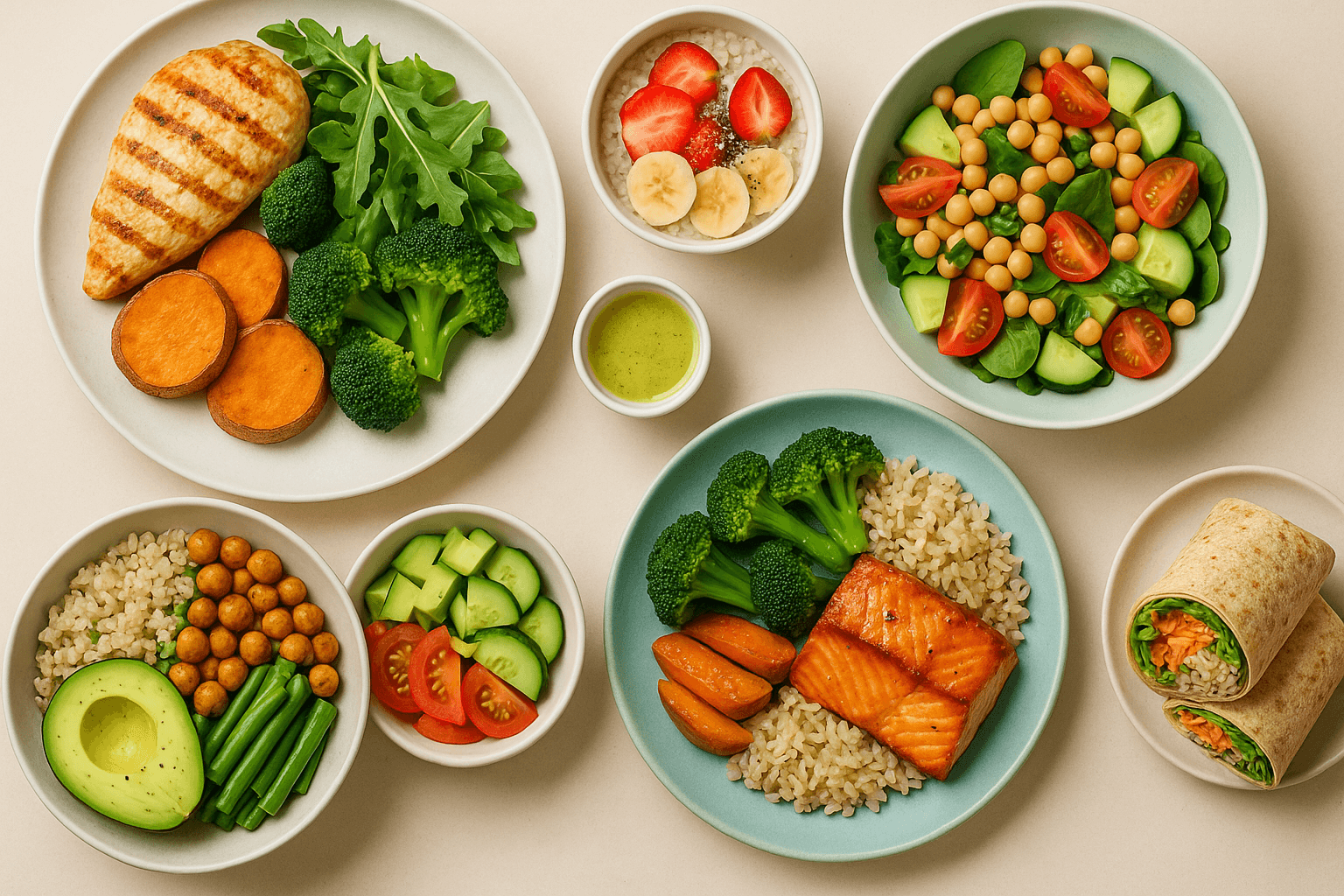CHRONO-NUTRITION & PERSONALIZED MEAL PLANNING: HOW TIMING AND INDIVIDUALIZATION TRANSFORM YOUR DIET
Published on August 25, 2025
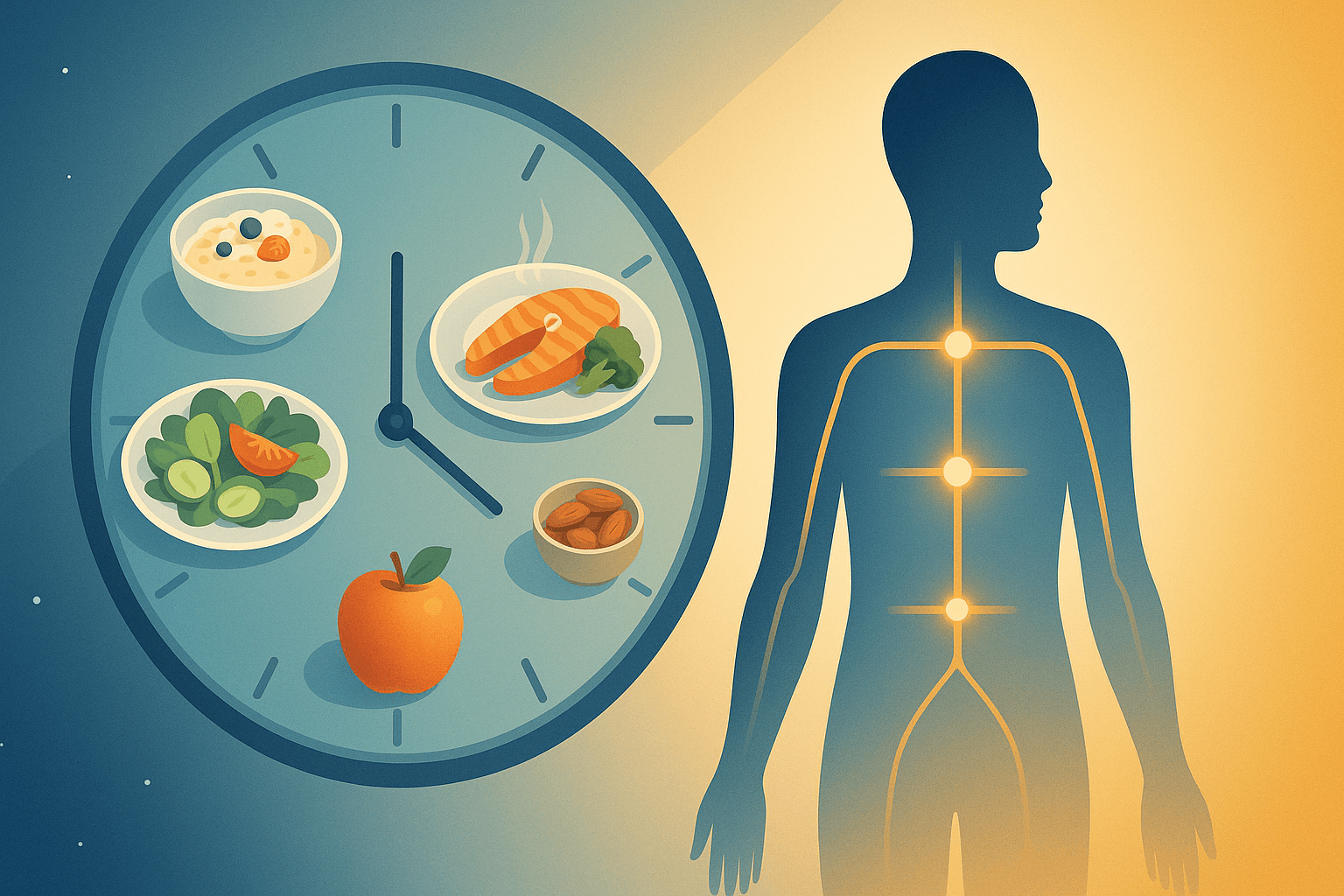
Planning meals has long been considered the foundation of healthy eating, but in today’s time-crunched, information-overloaded world, the very idea of a meal plan can seem antiquated, or even unappetizing
Forget those rigid weekly charts (or drab, identical containers stacked in your fridge)
The latest trend in eating is listening to your body’s inherent clocks (all hail chrono-nutrition) and designing meal plans that support not only your goals, but also your rhythms, work schedule, where you live, your genes, and your culture
Long gone are the days a one size fits all meal template will work for everyone—this is the era of personalized and timing
If you have ever found it daunting to follow a standard eater’s schedule, if you have ever felt tired while eating “correctly,” or if you have ever been mystified by the cacophony of advice proffered about breakfast, snacking or the “sins” of late-night eating, you are not alone
The future of meal planning is here and it’s delicious, personal, effortless, and designed for you
Through the science behind both when to eat (chrono-nutrition) and how to tailor plans to your real life, you can not only transform what’s on your plate, but also how you feel, how you work, how you think and even how you sleep each and every day
What Is Chrono-Nutrition?
Chrono-nutrition, a new and growing field, is the study of how what you eat impacts your circadian rhythm — your body’s internal clock that’s constantly running in the background to carry out essential functions for your survival
This rhythm impacts everything from metabolism and hormone release to sleep quality, energy, and even your risk of developing chronic diseases
Scientists have discovered that when you eat — and when you don’t — can affect your health, and not just because you may be grouchy if you’re hungry
The Principles of Chrono-Nutrition
Eat More Earlier in the Day
Metabolism and insulin sensitivity are both highest in the morning and early afternoon
Getting more calories and complex carbs earlier in the day can promote healthy blood sugar, control evening munchies, and aid in weight management
An ample, robust breakfast and a hearty lunch, yet not feeling bloated and not overly hungry in the evenings?
Minimize Late-Night Eating
Consuming heavy or large meals in the late evening, especially those high in carbohydrates or fats, gives your body an energy boost when it should be in “rest and repair” mode
Late-night eating can raise insulin levels, increasing blood sugar and the ability to store fat, and it disrupts sleep, making for sluggish morning or, worse, digestive upset
At night, your body metabolizes and digests food more slowly, so not eating dinner (it doesn’t have to be a huge meal) right before bed can also make quite an impact
Consistent Meal Timing
Skipping meals, eating at all different times or changing mealtimes day-to-day can mess with your circadian rhythm and your hunger hormones
Having a schedule keeps your body in better anticipation and preparation mode for feasts, making digestion gentler and energy more predictable
Respect Your Sleep-Wake Cycle
Synchronizing meals with your specific daily pattern, whether you are a morning person, a night person or a shift worker, is about respecting the way your body works
Don’t make yourself eat when you’re not hungry or skip meals when you’re ravenous
Meal timing for one of us is just as much about intuition as it is science
Individualization: Why Your Diet Should be as Unique as You
No two bodies are the same exact body, and that’s where the alchemy of personalized meal planning comes in
Your genetics, age, stress level, job, activity level, microbiome population, taste preferences, even your social calendar can affect the way you digest, absorb and respond to food
That’s why the best plans aren’t a regimen so much as a flexible blueprint
Identify Your Goals
Are you hoping to lose weight, build muscle, improve digestion, balance hormones, increase focus or just have more energy and feel better?
Your nutrition plan should always start with what your specific goals are — there is no ‘one-size fits all’ when it comes to diets
Consider Your Daily Routine
Your eating strategy needs to match your real life
Night-shift workers, early risers, parents of young kids, and athletes in training eat differently when it comes to timing and size of meals and the types of food
Fitting meal plans to your actual life makes eating well simple and fun
Respect Food Preferences, Culture and Social Life
Meals are more than nutrients; they’re joy, comfort and tradition
Any meal plan that disregards your favorite foods, family traditions, or cultural staples is a nonstarter
The most sustainable plans are the ones that incorporate the flavors and traditions you value, so that eating nutritiously is something you actually look forward to
Apply It Now: How to Plan Chrono-Personalized Meals
Front-Load Your Day
Try making breakfast or lunch your largest meal, ensuring that it includes complex carbs (whole grains, beans, fruit) and lean protein
This can rev up your metabolism, improve mood and concentration, and establish a success strategy for the rest of your day
Plan Satisfying Snacks
A well-selected midmorning and midafternoon snack is critical to keeping blood sugar stable and avoiding the “afternoon crash”
Nut butter paired with fruit, yogurt and seeds, or a homemade energy ball are all great choices
Keep Dinners Lighter and Simpler
For the evening meal, eat a lighter meal centering around non-starchy vegetables, lean protein (fish, tofu, chicken, beans), and healthy fats
A lighter dinner means better sleep, easier digestion, and less night-time snacking
Meal Prep as a Flexible Tool
Think of meal prepping as a resource, not a set of commandments
Batch-cook grains, roast an entire tray of veggies or prep a few types of grab-and-go proteins, and then you can create quick, nourishing meals throughout the week
Flexibility allows for ingredient and portion swaps as your hunger and schedule change
Experiment and Reflect
Experiment with changing up your meal size or meal timing for a week and journal your mood, energy, cravings, sleep and digestion
You will gradually discover your own rhythm — what gives you energy and what saps it
A Chrono-Personalized Sample Day
Early Riser’s Plan
7:00 a.m. — Gourmet breakfast: groats with nuts, seeds, berries in a shake, side of veggie omelet or eggs
10:30 a.m. — Snack: Greek yogurt with banana or homemade trail mix
1:00 p.m. — Big lunch: Salmon or tofu, quinoa or brown rice, big green salad with avocado
4:30 p.m. — Snack: Carrot sticks with hummus or fruit with nut butter
7:00 p.m. — Dinner Lite: stir fried vegetables with lean protein, small portion of brown rice
9:30 p.m. — Herbal tea or a few nuts if you want a little something before bed
Night-Shift Worker’s Plan
Tweak the timing and format to fit the rhythm of your day
Try to make your biggest meal just before you begin work and eat lighter as you approach bedtime
Stock up on snacks and meals that help stabilize energy and are easily digestible during late-night hours
Common Challenges and Smart Solutions
Social Meals and Celebrations
No eating plan should ever keep you from life’s big (or little) moments
Celebrations, holidays and family dinners may not always mesh with your dream schedule, and that’s okay
Put connection and joy first — and then go back to your routine the rest of the day
Good health is a long-distance run, not a sprint
Travel and Unpredictable Days
Life is full of surprises
Keep portable snacks on hand (like nuts, bars or fruit) and utilize grocery stores or healthy food delivery apps to locate choices
Flexibility is a skill that keeps you on track over the long haul
Plateau or Boredom
No matter how good a meal plan sounds, it can get stale if you do not change it up
If progress has stalled or meals are dull, re-evaluate your goals, nudge the ‘gear shift’ in your recipes, or tinker with your timing or scope
Sometimes all we need is a change of perspective to find our motivation
The Science — and Magic — of Forest Bathing
Early research shows that “when” you eat may be as important as “what” you eat
Eating more in sync with biological rhythms — when metabolism is revved up — may bring better blood sugar control, lowered cravings, improved attention and a higher level of fullness
Those who find their rhythm often say they are finally free from diet rules and obsessive calories-counting, adding the process has given them a new burst of energy and joy
The Future: AI, Wearables, Digital Personalization
We are in an era in which technology is making personalized eating plans possible for people
Smart apps and wearables can now monitor your sleep, your movement — and even your blood sugar, providing personalized feedback on what and when to eat
Genetic and gut microbiome tests are starting to pull back the curtain on why some people remain lean and energetic on a given diet or schedule, while others do not
But the most important “technology” will remain your own self-awareness — listening to what your body is telling you, picking up on patterns and being ready to adjust as needed, and doing it all with kindness and curiosity
Final Thought: Do Meal Planning Your Way
Preparing a meal isn’t just about time-saving, weight-loss and hitting some arbitrary calorie number
It’s a profound act of self-care — a means of structuring your days so that eating well feels intuitive, satisfying and sustainable
The ideal schedule is one that changes with you, that makes use of the science of chrono-nutrition, and reflects your personal taste and needs
Don’t be afraid to try new things, reflect on the results and adjust
The person you aspire to with your health and happiness is not just waiting for you at the finish line— it’s in the little choices and discoveries you make every step of the way, one bite and one mindful moment at a time



